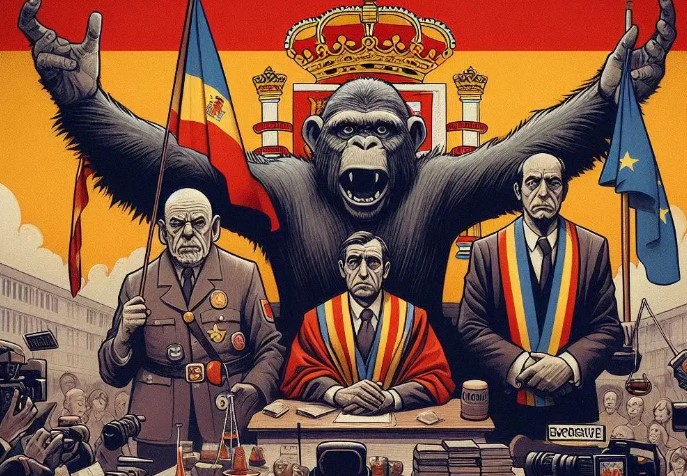The Spanish government under Pedro Sánchez is preparing to introduce a new law that could have far-reaching implications for the use of recordings in legal proceedings. This so-called “Koldo Law,” named after the corruption case currently gripping Spain, aims to invalidate “unlawful” recordings, such as those contained in the latest report by the Central Operative Unit (UCO) of the Guardia Civil. The report highlights alleged bribes and manipulation in public works projects, in which names like Santos Cerdán, José Luis Ábalos, and Koldo García are said to be involved.
A New Law for Honor: What’s at Stake?
The draft bill, initiated by Justice Minister Félix Bolaños, seeks to redefine interventions concerning the right to honor, privacy, and one’s own image. Specifically, Article 7 of the draft outlines several “cases of unlawful interference”:
- Eavesdropping and Recording: Any recording or use of eavesdropping systems, microphones, optical devices, or other means intended to capture the intimate life of individuals shall be considered unlawful.
- Private Communications: The knowledge or reproduction of private communications, memoirs, or personal recordings will also be restricted.
- Reputational Damage: The disclosure of facts relating to private life that harm reputation or good name, as well as the dissemination of private communications.
- Informants: The disclosure of private data known through professional or service activities shall also be prevented. This includes, for example, cases where professionals denounce colleagues.
The aim is to declare the use of such recordings as evidence in court invalid, to protect the privacy of individuals. This approach contrasts with the so-called “Begoña Law,” which aimed to limit public accusations and originated from a parliamentary initiative. The “Koldo Law,” however, is a direct initiative of the government.
The Strategy Behind the “Koldo Law”
The proximity of the planned approval of the bill by the Council of Ministers – just one day after Santos Cerdán’s statement before the Supreme Court – is notable. It perfectly aligns with the defense strategy of those named in the UCO report, who question the authenticity of the recordings. Both Ábalos and sources close to Cerdán have raised the possibility that the recordings might have been manipulated or created with artificial intelligence. Ábalos himself assured the Supreme Court that these recordings had been “manipulated” and had caused him “great damage” to his reputation.
The draft bill thus appears to be an “ad-hoc” law specifically tailored to the current situation surrounding the Koldo case, to undermine the evidentiary value of the material contained in the UCO report. This could strengthen the government’s legal strategy by questioning the credibility of recordings that put the executive in an embarrassing position.
Implications for Future Investigations and the Judicial Offensive
While Article 8 of the draft provides for exceptions for measures authorized by judicial or police authorities, the core question remains: will these changes to existing regulations on the right to honor (dating back to 1982) affect the ongoing investigation in the Koldo case? The sole transitional provision of the bill states that legal proceedings related to the civil protection of the right to honor, personal and family privacy, and one’s own image that are not yet concluded at the time of entry into force of this Organic Law shall continue essentially in accordance with the existing regulations. However, government sources consulted warn that while it may be difficult to invalidate the recordings made by Koldo García, which allege bribery in public works contracts involving Santos Cerdán and José Luis Ábalos, it could affect the presentation of future recordings between government members if they are presented after the “Koldo Law” is passed.
This is not the first legal offensive by the Sánchez government. Since the indictment of his wife, Begoña Gómez, in May 2024, the government has introduced a series of legislative proposals that could impact the judiciary. These include the “Begoña Law” to limit popular accusations, a law to amend access to the judicial and prosecutorial career, and the reform of the Public Prosecutor’s Office Statute to strengthen the role of the State Prosecutor General. The “Koldo Law” appears to be another building block in this comprehensive strategy aimed at navigating the executive’s legal challenges.




